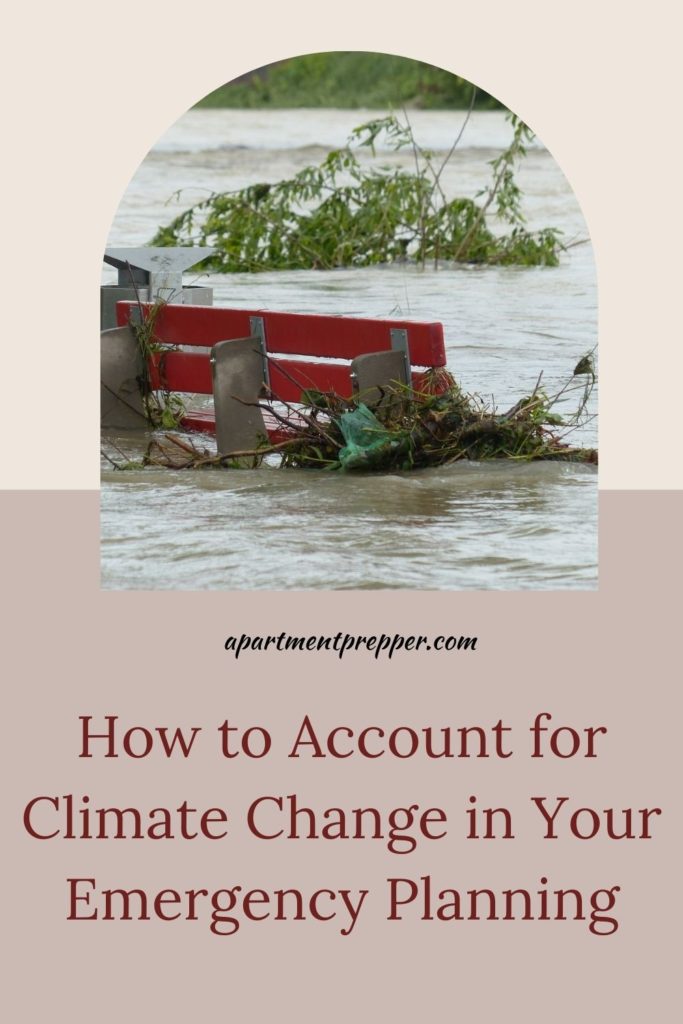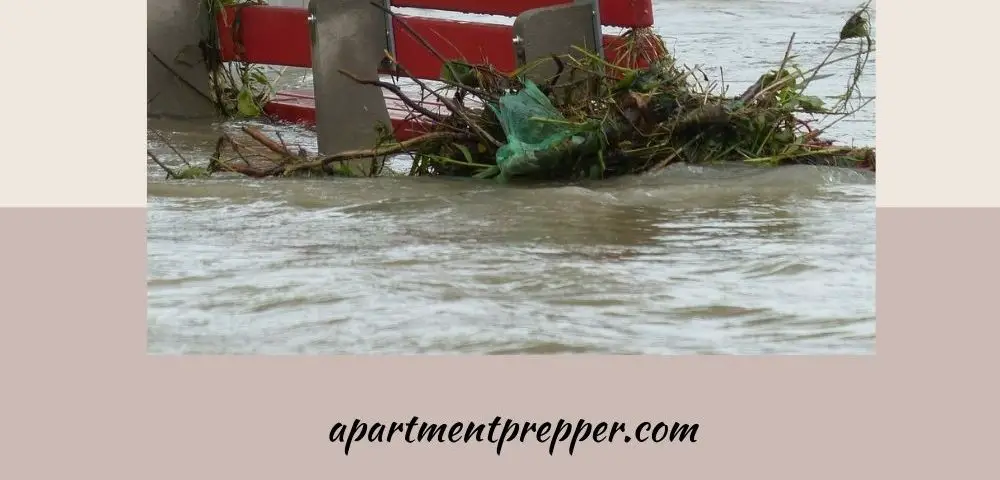Written by Martin Banks
Climate change is affecting the planet in significant ways. From natural disasters to supply shortages, rising temperatures are making survival more difficult for all life on Earth, including humans. Unfortunately, those in power are doing little to prepare. Even the National Flood Insurance Program, which is administered by FEMA, fails to factor climate change into its decisions.
That’s why preppers are taking initiative and beginning to plan for climate crises themselves. This is especially important if you live in an area that’s prone to natural disasters like wildfires, droughts, floods and tsunamis. Protect yourself, your land and your family with tips for surviving the climate crisis.
1. Generate Your Own Power
Each year, millions of people in the U.S. and Canada experience power outages due to passing storms, and things are only going to get worse. As the climate crisis grows direr, extreme weather scenarios will become even more common and more people will lose power more frequently and for longer periods of time.
Plan for power outages and become more self-sufficient by learning to generate your own electricity. Purchase a windmill or make your own water turbine to power your homestead or survival bunker. You can even turn a lawnmower into a generator if you have a few gallons of gasoline handy.
2. Build a Home on a Hill
In 2019, the international disaster database recorded 11,755 deaths due to natural disasters. Flooding accounted for more than 43% of them, making it the most deadly disaster worldwide. Of course, some areas are more prone to flooding than others. If your home is at risk, consider alternative housing in your emergency planning.
Build a home or take preventive measures by moving now. Just make sure the shelter is high above the water table. The smartest way to accomplish this is by raising your home up on stilts or building it on a hill. The latter option would put you in an ideal place for harnessing wind or even solar power depending on the elevation.
3. Stockpile Supplies
As global temperatures continue to rise, wildlife populations are experiencing mass die-offs on land and at sea. Meanwhile, farmers are finding it’s more difficult to grow successful crops and sustain the world’s growing population. Needless to say, food will soon be in short supply. Droughts, wildfires and overconsumption will also disrupt supply chains and result in water and material shortages in the coming years. Clearly, preppers need to stockpile supplies now to ensure their survival.
First, consider your geographical location. Is the area prone to droughts and wildfires? Stockpiling water should be your top priority. Do you live in a rural area with only one grocery store? Fill your bunker with canned, dried and powdered foods that are easy to prepare or light enough to carry in a bug-out bag. Remember to gather guns, knives, medical gear, rope and other supplies, too. That way you have everything you need when disaster strikes.
4. Make a Bug-Out Bag
Most preppers would be better off staying in their house or bunker during an apocalyptic situation or extreme weather scenario. However, if tornadoes, drought, rising sea levels, wildfire or zombies are threatening your health or safety, you’ve reached the shit hits the fan — or SHTF — stage. At this point, you often have no choice but to pack up and move on.
There’ll be little time to gather your gear, so you’ll want to make a bug-out bag well in advance. Skip the pre-made kits and make your own. It’s more affordable and customizable that way. Make sure you have at least seven days’ food in the form of dehydrated Meals Ready to Eat. Water, purification tablets, a first-aid kit, field knife and lighter are must-haves too.
If you don’t have a backup shelter, you’ll likely be living in the woods for a while, which means you’ll need a tent, sleeping bag, ground pad and other similar gear. Make a bag for each member of your family so everyone is prepped for survival.
5. Practice Your Plan
Gathering equipment and supplies is one thing, but being ready to use them is another. Do you know how to track, snare and skin a rabbit in the pouring rain? Do you even know what kind of wildlife is in your area? Can you tell whether water is safe enough to drink? Most of these skills are easy to master, but they take practice.
Learn how to use all the tools in your bug-out bag and take a hands-on approach to survival by going into the wild and using your gear. Practice hunting and foraging for food in and around your local area. Start a garden and harvest your own crops. Some preppers even go stealth camping where they sneak into places they shouldn’t be, stay the night and leave in the morning without being detected.
Remember to review and periodically update your emergency plan. Figure out what works and what doesn’t in different survival scenarios and remember to take climate change into account. If things get worse, you might need to practice more often so you’re more confident and capable.
Doing Your Part
No one outside of your immediate family should know that you’re a prepper. Otherwise, everyone and their brother would show up on your doorstep and expect help in an emergency. Odds are you won’t have enough supplies to provide for everyone, but that doesn’t mean you can’t help others prepare before all hell breaks loose.
Encourage emergency management at regional, state and local levels by doing your part as a climate change prepper. Engage with research groups and provide data about weather patterns in your area and discuss the climate crisis with your friends and family.
The more information you share, the more people can prepare for the future, provide more accurate forecasts and help establish warning systems to ensure early alerts and save lives.
About the author
Martin Banks is the managing editor at Modded. Follow him on Twitter @TModded for frequent updates on his work.
If you found this article interesting or helpful, please consider helping us out (without costing you anything)! We are an affiliate of Amazon.com, which means we received a small commission if you click through one of our Amazon links when you shop, at totally no cost to you. This helps keep the lights on at the blog. Thanks!
Image by Hans Braxmeier from Pixabay



In the 70s we were told the science is settled!
The next ice age is coming! 😮
The earth will be iced over.
In the late 90s we were told the planet “has a fever” , our world is melting and NYC would be under water.
AlGore is worth some one third BILLION DOLLARS selling global warming and his brand of indulgences in the form of “carbon credits”.
Global cooling, global warming – it gets cold and it gets warm.
Now it’s called climate change.
I call it weather, but I’m old fashioned…
It is about big business and controlling the masses.
Increasing the cost of energy, increases the cost of everything. It is another tax to keep the masses poor and controlled.
Where do all solar panels, windmills and batteries come from?!
Answer: China
Be prepared, continue to teach us great things
BUT don’t fall into the global warming nonsense !
I agree that we should be prepare for all sorts of disasters, natural or manmade.
Hi Rich, The weather disasters could be just that, weather, and all the hype about climate change doesn’t change anything. Either way, we still need to prepare. Thanks for the comment.
Great points. A piece of advice in my family that has always been passed down is “always buy a house on a hill” so we’ve always looked at flood plains and elevation when moving.
I have a couple more to add that may be more or less relevant depending on people’s situations:
– if you’re able to garden on any scale, learn about gardening in different zones – different temperatures and humidities. It may be that you can’t grow what you are used to or in the way that you are used to in the future. Learn about water conservation, shade cloth, cloches etc even if it doesn’t seem so relevant yet.
– insulate your house for heat and cold and look into methods of keeping warm/cool that are not dependent on electricity. Learn how people in different climates do it as your climate might well be different soon.
– learn about and prepare for those medium scale disasters like wildfires/floods/ice storms/droughts that don’t usually hit your area. It’s the unusual disasters that the local infrastructure might not be prepared for, so is more likely to fail.
Hi Ali, These are all great tips and appreciate you sharing them. I really need to get more familiar with zone gardening. Thanks for the comment!
want a good site who analyses the propaganda of climate change
especially the archived data from reliable sources or at least once were
he found data on record temps 100 yrs ago that were higher, how forest firs are actually less and yes today more homes are in danger since there building in fire areas. and his favorite the lies of polar ice and Greenland. realclimatescience.com
you tube censured site but he links to his uncensored
tony heller
even if convinced about AGW look how academics, media and gov are lying changing facts, should scare everyone
but one point in this story. smart building ,preparations for any disaster
i spent a month in the 1990s very cold with no heat due to a undergrown oil tank leaking water in. and only fireplace and tiny electric heater
and since oil was cheaper i had no kerosene and the heaters were not serviced , so now in fl i have generators, a portable a/c unit propane camp stove . and 2 way radios .and food in . but i am not afraid of agw
but the storms and government making bad decisions
Hi jr233 Thanks for the referral. FL gets so many storms – good thing you are prepared with generators, a/c and other backups. I appreciate your comment!